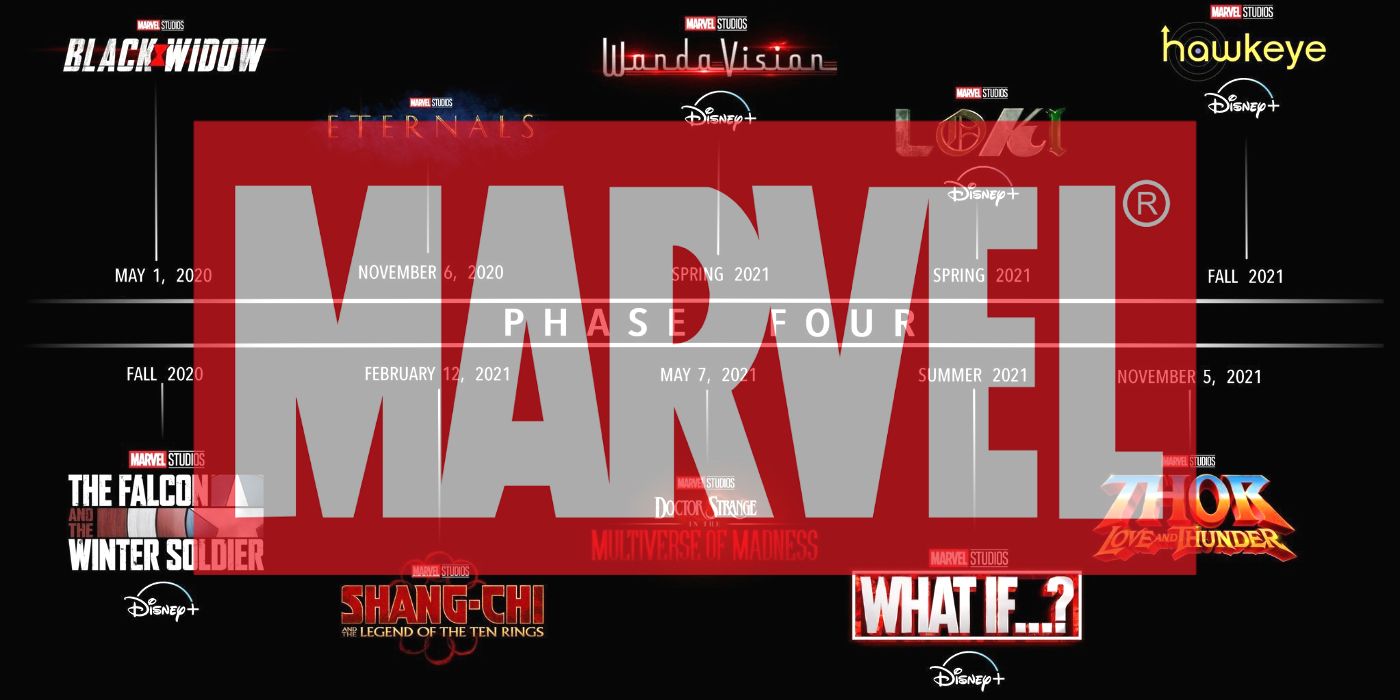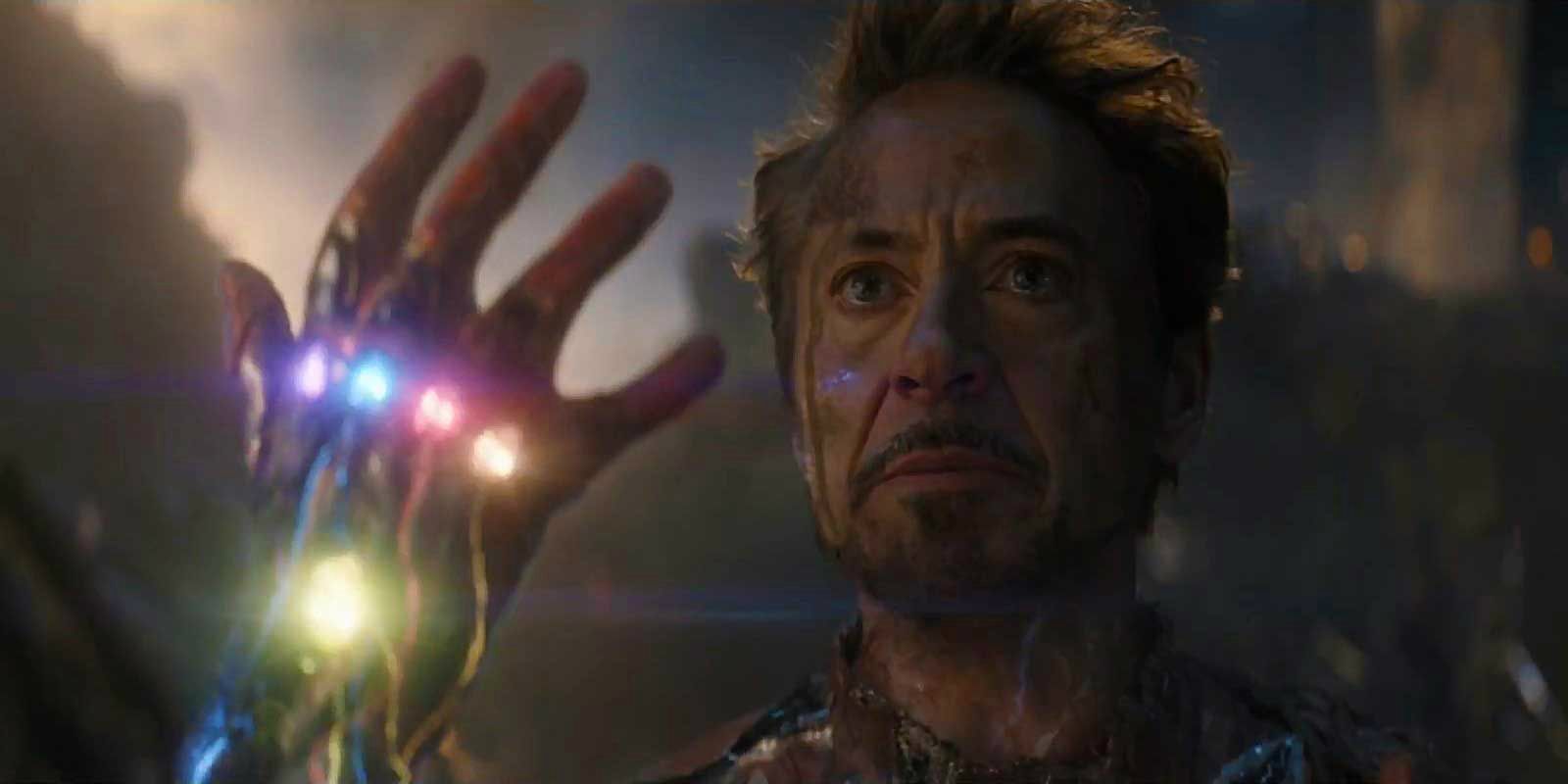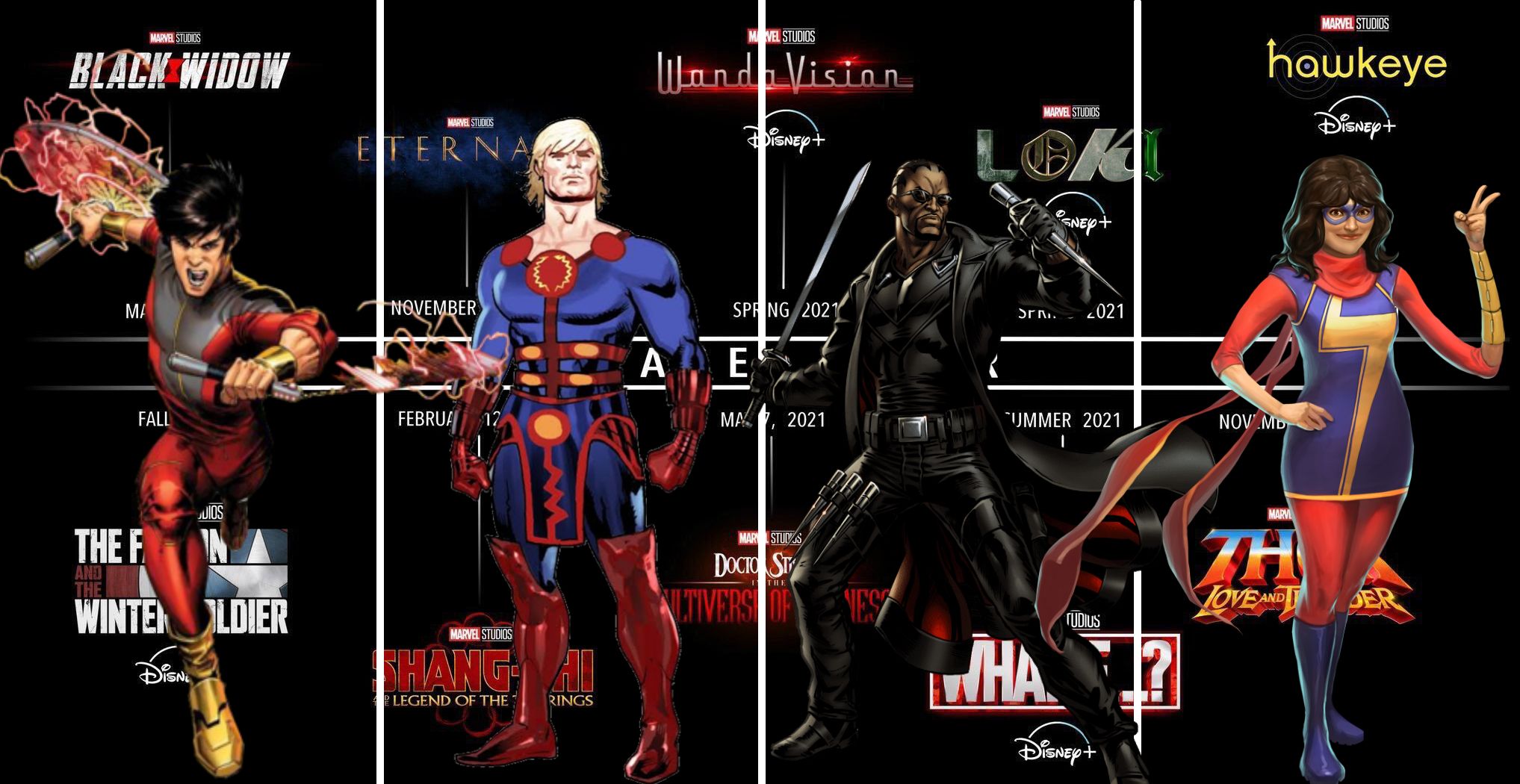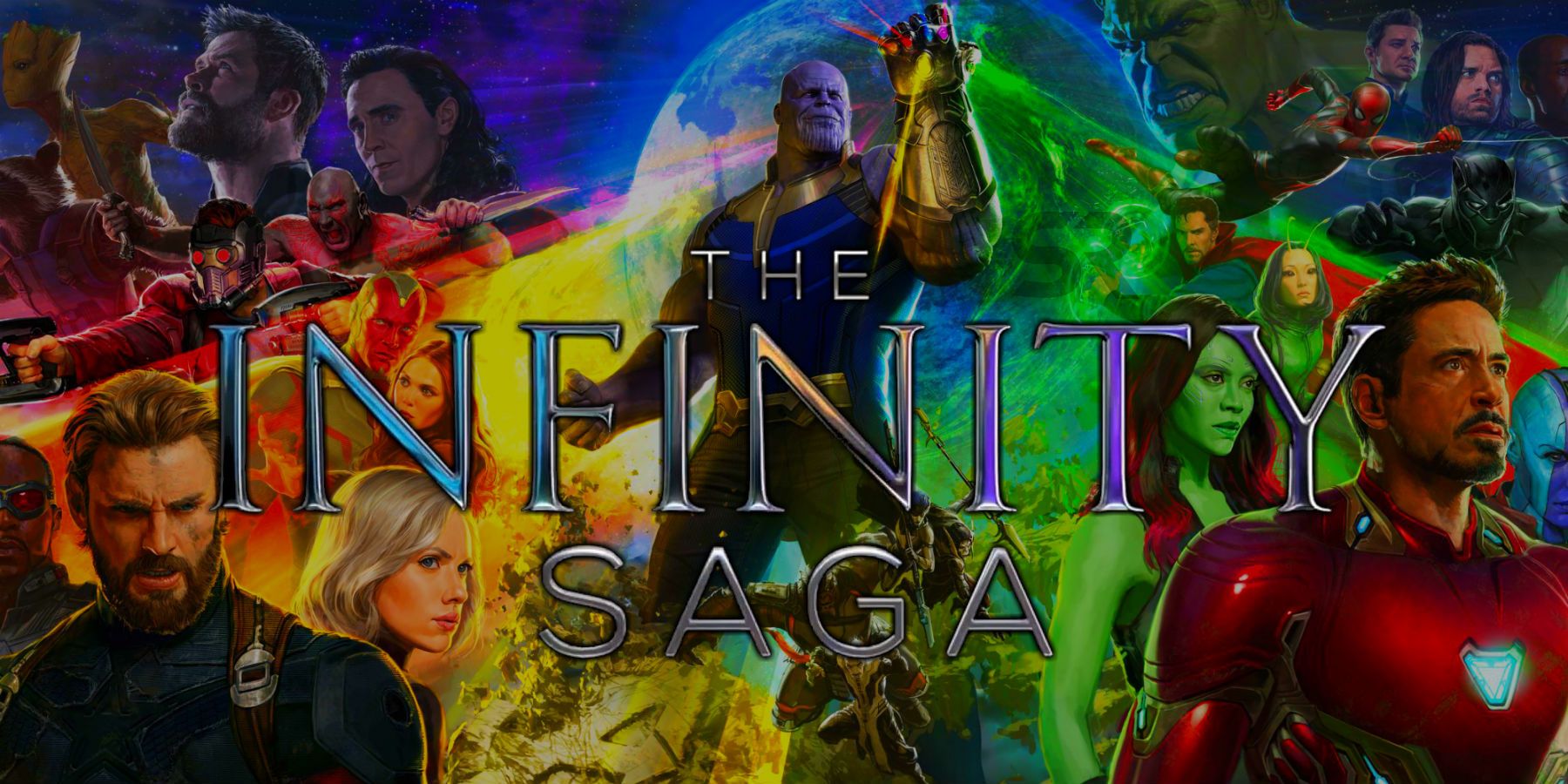As the Marvel Cinematic Universe continues to expand in the aftermath of the record-breaking success of Avengers: Endgame, Phase 4 will be a major indicator of the brand's continued longevity. Endgame, which grossed over $2 billion dollars in the mad-dash to become the highest grossing film of all-time (minus inflation), was the end of Marvel's Phase 3, as well as the culmination of their first three phases of storytelling. This era of the franchise, starting with the first Iron Man way back in 2008, was aptly titled "The Infinity Saga" by Kevin Feige, and confirmed to be just the beginning of what Disney and Marvel have in store for the series.
At the San Diego Comic Con in 2019, Feige and company officially unveiled the upcoming films in the slate for Marvel's secretive Phase 4. These include Black Widow, The Eternals, Shang-Chi, Doctor Strange 2 and more, including surprise reveals of Mahershala Ali's casting as Blade, as well as hints at when audiences might see the Fantastic Four and the X-Men make their long-awaited debuts in the MCU. There's also the business of the Marvel/Disney+ shows, featuring several new and returning characters across a varied roster of different genres and premises. These promise to be integrated alongside the films in a major way that Marvel's TV shows haven't been yet (something that rivals DC & Warner Bros. recently beat them to with Crisis).
With so much content on the horizon, it's easy to assume that the Marvel train will keep chugging along as usual, delivering new heroes and new stories throughout the next decade. However, upon closer inspection, there are a lot of factors that have contributed to the success of the MCU that Phase 4 will now have to go without, or find a way to work around. With all of the challenges and questions raised about the next chapter in the MCU, the franchise's entire future now rests on the back of Phase 4.
The MCU Needs To Justify Continuing Post-Endgame
Despite the ongoing and unending nature of its comic book source material, Avengers: Endgame's marketing focused considerably on the film as a culmination of everything fans had seen up until that point, as well as a proper ending to the storylines established as far back as Phase 1. While there are several other loose ends and teases for storytelling opportunities sprinkled throughout the franchise, Endgame brought the major storyline that the films had been following for over 12 years to a resounding close. The movie provided what felt like an honest and proper ending, delivering on everything franchise closers usually do: emotional character deaths, the satisfying defeat of the Big Bad, and the promise of peace at last. There wasn't even a post-credits stinger — a first for the franchise.
While comic book and diehard film fans have known for some time that Endgame wouldn't be a true ending, a lot of members of the general audience believed that what they were seeing was a true conclusion, something along the lines of The Return of the King or Deathly Hallows Part 2. To avoid feelings of betrayal on behalf of confused fans, or accusations that the Superhero franchise is running out of momentum, Phase 4 has to truly capitalize on its status as a new beginning to keep its audience engaged. While the Disney+ shows are something that Marvel hasn't really tapped into yet, they also need to make sure their films are unique and varied enough to appeal to longtime fans who don't have access to the streaming service.
New Characters Need To Be As Likeable As The Original Team
To truly sell the heightened stakes present in Avengers: Endgame, the film doubled down and killed off or retired several members of the original team, including Robert Downey Jr.'s Tony Stark, Scarlett Johansson's Black Widow, and Chris Evans' Captain America. While Black Widow's solo film is set to be released sometime this year, and there are rumors that Tony Stark might make an appearance, for all intents and purposes, one half of the original team's roster is gone. A big reason why the films resonated so strongly with so many people is that they were anchored by charismatic and likeable performances that made it easy for audiences to get attached to the characters. Comic book fans will turn out just to see their favorite stories and characters on the big screen, but the general audience are attracted by the actors.
Even though Phase 4 has promised the debuts of several new characters, each with their own origin films or shows, it's a big risk to assume that fans will latch onto them in the same way that they did with the original Avengers. Brie Larson's Captain Marvel is a good example of this risk. Despite her inspired and stoic performance as the character, a certain subsection of fans weren't pleased with her depiction (although it's worth mentioning that many of these complaints were rooted in misogyny, not Larson's performance as Captain Marvel). The MCU has to make certain that the new characters they are introducing are both well-written as well as precisely cast, because they'll naturally want to replicate that invaluable sense of attachment with each of their 4th generation heroes.
Phase 4 Can't Be The Same As Phases 1-3
A big criticism of the MCU is that its formulaic the films feel predictable and manufactured because of their episodic nature, and even if one disagrees with this sentiment, it's easy to see where this complaint comes from. Each phase thus far has been some variation of: origin films, sequel films, and team-up films. A lot of the origin stories in the franchise have borrowed story beats and structure from each other, and with the promise of an Infinity Stone somewhere in the phase, it's always been easy to draw fans in by convincing them that every film might be important. Thanos and the Infinity Stones have been one of the MCU's biggest assets up until this point because of the connective tissue it granted all of the movies; audiences knew where the story was headed because of the stones and Thanos' cameos.
However, Phase 4 shouldn't rely on the Infinity Stones as McGuffins again because most of them are gone. At this point, it also can't rely on the comfortable structure of previous phases, as the Avengers are (seemingly) disbanded, taking the classic team-up film off the playing field. Phase 4 is in a precarious situation currently, as it has to walk the tightrope of being familiar enough as to not put off fans, while also being unique enough to keep those same fans engaged. The franchise has to avoid going through the motions, and these next two to three years will be a test as to how long the Marvel Cinematic Universe can keep up its winning streak.










